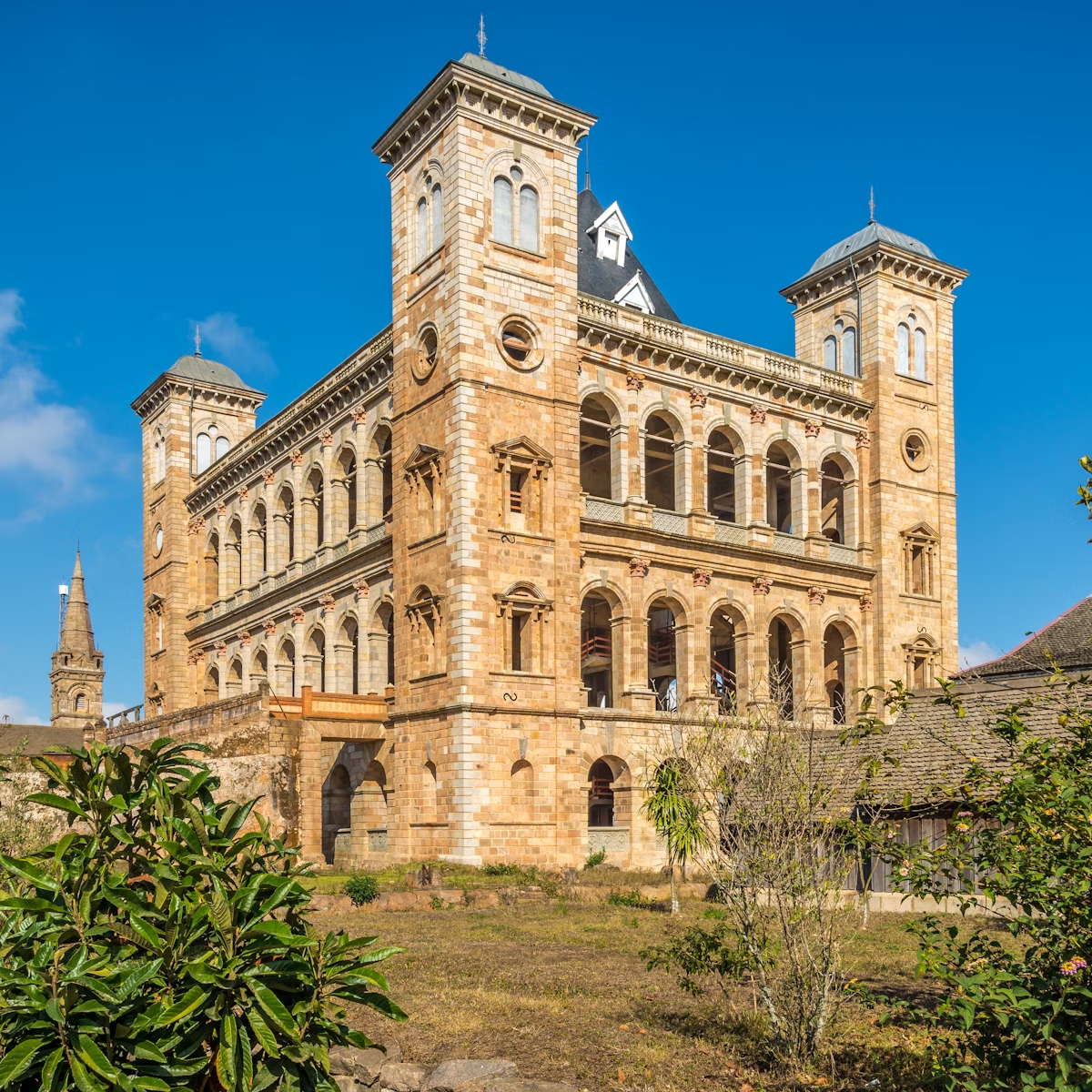Poised atop Ambohimanga hill is the Rova, the fortress-palace. The walls of the compounds were constructed using cement made from sand, shells and egg whites – 16 million eggs were required to build the outer wall alone. Inside, there are two palaces: the traditional palace (1788) of the all-powerful Merina king Andrianampoinimerina, and the European-styled summer palace of Queen Ranavalona I (r 1828–61), constructed by French engineer Jean Laborde in 1870 (he was thought to be Ranavalona’s lover).
The word ‘palace’ seems over the top to describe King Andrianampoinimerina's simple wooden hut (1788), but palace it was. The original was thatched, but Jean Laborde replaced the grass roof with more durable wooden tiles in the 19th century.
The central pole of the hut is made from a single trunk of sacred palisander (rosewood), which was reportedly carried from the east coast by 2000 slaves, 100 of whom died in the process. The top of the pole is carved to show a pair of women’s breasts, a symbol of the king’s polygamy. The king supposedly hid in the rafters when visitors arrived, signalling whether the guest was welcome by dropping pebbles onto his wife’s head.
The royal bed is in the sacred northeast corner of the hut and is elevated to indicate the king’s superior status. The simple furniture is aligned according to astrological rules.
Behind the hut are the open-air baths where the king performed his royal ablutions once a year, in the company of his 12 wives and diverse honoured guests. Afterwards his bathwater was considered sacred and was delivered to waiting supplicants.
Next door to King Andrianampoinimerina’s hut, in a striking style contrast, is Queen Ranavalona I's elegant summer palace. It’s been beautifully restored and has original European-style furniture inside. The dining room was lined with mirrors, which allowed the queen to check that no one was sneakily poisoning her food.
Ambohimanga is still revered by many Malagasies as a sacred site, and you will see offerings (zebu horns, blood, sweets and honey, as well as small change) at various shrines around the compound where individuals or families have come to invoke royal spirits for luck and fertility. Don’t disturb these sacred locations and never point at them with your finger outstretched.
There are sensational views of the surrounding countryside from around the compound.
Make sure you take a guide to go round the Rova to learn about the site’s historical and cultural significance. Guides (French- and English-speaking) trained by OSCAR, the local tourist office, are available at the entrance where you pay your admission. A tip of around Ar5000 is appropriate.


